Dave Armstrong's Blog, page 34
November 5, 2012
Prayer for the Dead: Attempted "Dialogue" (Ha Ha) on its Biblical Support with a Protestant Preacher
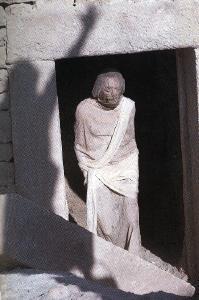
This exchange occurred on my Facebook page (which is public; therefore I can cite it here). I've added a few additional replies that were not in the original "discussion." I think it is very helpful to illustrate how not to argue any theological point, since my opponent uses many of the classic evasive and obscurantist, obfuscatory techniques of folks who don't appear to be interested in an open, mutually respectful dialogue. His words will be in blue.
His initial remarks were in response to my sharing the following blog article on my Facebook page: Prayer for the Dead: Lutheran Pastor (LCMS) Defends it from Scripture, Citing the Pauline Example of Onesiphorus. Here are the passages (RSV, as throughout):
2 Timothy 1:16-18 May the Lord grant mercy to the household of Onesiph'orus, for he often refreshed me; he was not ashamed of my chains, [17] but when he arrived in Rome he searched for me eagerly and found me -- [18] may the Lord grant him to find mercy from the Lord on that Day -- and you well know all the service he rendered at Ephesus.
2 Timothy 4:19 Greet Prisca and Aq'uila, and the household of Onesiph'orus.
The "discussion" proceeds upon my opponent's response to this.
* * * * *
Is that the only example you can find in the N.T. of prayers for the dead? Pretty slim pickings to base an entire doctrine on, especially when you look at what the verse says (2 Tim. 1:18): "The Lord grant unto him that he may find mercy of the Lord in that day; and in how many things he ministered unto me at Ephesus, thou knowest very well." Can we say "that day" (there and v. 12) is the Judgment Day? If he's in hell when Paul wrote that, all it might be, is a wish (not prayer to God) that the man be given mercy in the judgment. Paul can wish and think that without actually praying that to God. If he's in heaven, what might the mercy of God be for? Perhaps a wish on Paul's part that the man not lose any rewards for all the help he gave Paul. In no case is this verse a necessary support for purgatory, because "that day" --- Judgment Day --- would be after one was in purgatory (if it existed).
No; there is more:
1 Corinthians 15:29-31 Otherwise, what do people mean by being baptized on behalf of the dead? If the dead are not raised at all, why are people baptized on their behalf? [30] Why am I in peril every hour? [31] I protest, brethren, by my pride in you which I have in Christ Jesus our Lord, I die every day!
One Catholic interpretation of this fascinating passage holds that “baptized” is used not for the sacrament, but to denote redemptive suffering on behalf of the dead (analogous to prayer on their behalf) , along the lines of “baptism” used in this sense in other passages:
Mark 10:38 But Jesus said to them, "You do not know what you are asking. Are you able to drink the cup that I drink, or to be baptized with the baptism with which I am baptized?"
Luke 12:50 I have a baptism to be baptized with; and how I am constrained until it is accomplished!
The sense, in other words, is that if the dead don’t rise again, why should anyone suffer and mortify themselves for them, or pray for them? 15:30-31 backs up this interpretation, because Paul links his own suffering to the preceding verse. It’s also backed up by a very similar deuterocanonical passage:
2 Maccabees 12:40-45 Then under the tunic of every one of the dead they found sacred tokens of the idols of Jamnia, which the law forbids the Jews to wear. And it became clear to all that this was why these men had fallen. [41] So they all blessed the ways of the Lord, the righteous Judge, who reveals the things that are hidden; [42] and they turned to prayer, beseeching that the sin which had been committed might be wholly blotted out. And the noble Judas exhorted the people to keep themselves free from sin, for they had seen with their own eyes what had happened because of the sin of those who had fallen. [43] He also took up a collection, man by man, to the amount of two thousand drachmas of silver, and sent it to Jerusalem to provide for a sin offering. In doing this he acted very well and honorably, taking account of the resurrection. [44] For if he were not expecting that those who had fallen would rise again, it would have been superfluous and foolish to pray for the dead. [45] But if he was looking to the splendid reward that is laid up for those who fall asleep in godliness, it was a holy and pious thought. Therefore he made atonement for the dead, that they might be delivered from their sin.
Jesus not only prays for Lazarus, but in a sense, to him as well, by commanding him (a dead person). The same occurred when He raised Jairus’ daughter and the son of the widow of Nain. In commanding them to rise, He was simultaneously praying for them.
Likewise, when Peter raised Tabitha, the text specifically notes that he “prayed” and then commanded her. Lastly, the prophet Elijah clearly prayed (successfully) for a child to be raised.
[see John 11:41-44; Mark 5:39-42; Luke 7:14-15; Acts 9:40-41; 1 Kings 17:18-23]In fact, indirectly, Jesus even commanded His disciples to pray for the dead (“Heal the sick, raise the dead, . . .”: Mt 10:8). We’ve seen the models above [bracketed passages], of how one raises another from the dead. They include prayer, and also talking to the dead person.
All of this is quite anathema and unthinkable to most Protestants, but there it is, right in front of us, in Holy Scripture. Are we to follow the forbidden mere traditions of men, that go contrary to Scripture, or God’s inspired, infallible Word (as the Catholic Church has done in this instance)? The choice is very easy.
Dave, your examples above all seem to involve raising people from the dead. Is that what you do when you pray for the dead?
Are they instances of prayer for the dead or not? Your task is to prove that they are not if you have this odd notion that all such prayer is forbidden. But they clearly are, so you have a problem. 1 Corinthians 15:29-31 is not raising the dead, though; it is aiding the dead by penance or prayers. Protestants have very little cogent explanation for it.
Well, in John 11, Jesus' prayer to God is not a prayer specifically for Lazarus, who is not even mentioned in His prayer to the Father, so I can say it was not a "prayer for the dead."
That would be stretching it In John 11:41 Jesus prays to the Father, "I thank thee that thou hast heard me." Heard Him about what? The most plausible answer is that He prayed about raising Lazarus (especially since we know He did in other instances of His raising the dead). There is nothing else in the immediate context to suggest that the prayer where He had been "heard" was about anything other than Lazarus.
Mark 5 and Luke 7 do not even mention a prayer.
I didn't claim that they did. What I stated was that "In commanding them to rise, He was simultaneously praying for them." Jesus was talking to dead people in a way that Protestants claim we can never do (because they equate any such communication with necromancy, seances, etc.).
Acts 9 mentions prayer but does not give its contents, so we don't know what Peter prayed.
Which is perfectly irrelevant to the present dispute (the exact content) . . . It remains proof that Peter prayed for a dead person. He was obviously doing that; then he talked to a dead person, too, saying,
"Tabitha, rise."
Only 1 Kings 17 tells us what was prayed (" let this child's soul come into him again"), but, again, it was to raise the child from the dead.
And it was an instance of prayer for the dead. Case closed. Prayer for the dead is repeatedly illustrated in the biblical books that Protestants accept. Paul prays for the dead Onesiphorus too.
My point is that praying for the dead is nowhere encouraged by any N.T. writer
Really? I just demonstrated how it was.
and is pointless unless you were raising them from the dead and God led you to do that. More "pointless" than "forbidden."
Paul wasn't trying to raise Onesiphorus from the dead. Nor were those who suffered for the dead through penances (1 Corinthians 15:29-31, backed up by the precedent and scriptural proof of 2 Maccabees 12:40-45) trying to bring them back.Yet somehow (if we accept your view -- and I don't) the Christian Church has done it all through these centuries . . . how odd again. If Jesus and Paul and Peter and Elijah all prayed for the dead, it's good enough for me!
So, when do you do it? When you want to raise someone from the dead?
Why do you believe in sola Scriptura when it is not taught in the Bible?
Ah, the old change-the-subject ploy....
Not at all. This is the premise that lies underneath your questioning. But even sola Scriptura doesn't require a biblical prooftext that is identical in all particulars, as you now foolishly demand. You deny prayer for the dead. I showed it in the NT. Now you quibble about particulars (whether it is used to raise the dead), but logically that doesn't disprove the fact. You claim my examples are only of this sort. Two of them are not.
I asked you, when do you do it? Obviously it is not to raise anyone from the dead. So, what is the scriptural justification, if any, for your prayers for the dead? 1 Cor 15?
I gave many biblical prooftexts for prayer for the dead. You don't agree with them. Fine. There are always people who will pick and choose what they like from the Bible and what they don't like. Nothing new there. We follow what the Bible teaches. You think eight or nine texts are insufficient to establish the doctrine and practice.
Yet, like almost all Protestants, I assume that you accept sola Scriptura as your rule of faith. Sola Scriptura is not ever explicated in a single verse in Scripture. I wrote two entire books about it [one / two], and tons more on my blog [on this web page]. Yet Protestants base their entire belief on authority and the basis of theology on this non-biblical tradition of men. You're not stopped by the complete absence of any proof in Scripture, from believing it, anyway.
So I wonder why you say our biblical support is inadequate when I present many prooftexts, while you have none for sola Scriptura? Why don't you apply this same criterion of proof to yourself, and cease believing in that?
The same is true for the canon of Scripture. Nothing in Scripture indicates which books belong in the Bible. The book of Esther doesn't even mention God. Yet Protestants accept as dogma the fact that there are 66 books. And they arbitrarily decided to eliminate seven books that the early Church accepted as Scripture. The same authority that established the canonicity of the 66 books accepted by all, also canonized the seven books we Catholics accept.
I'll ask you again, when do you do it? Obviously it is not to raise anyone from the dead. (Have you raised anyone from the dead lately?)
I haven't, but Jesus casually assumed that His disciples would and could do so (“Heal the sick, raise the dead, . . .”: Matthew 10:8), and throughout history many people have:
. . . reports from St. Irenaeus, Pope St. Gregory the Great, and St. Augustine (City of God, Book XXII, ch. 8 ), and actual raisings said to be performed by St. Hilary, St. Ambrose, St. Martin of Tours, St. Benedict, St. Bernard, St. Malachy, St. Anthony of Padua, St. Elizabeth, St. Catherine of Siena, St. Teresa of Avila, St. Ignatius Loyola, St. Dominic, St. Philip Neri, St. Patrick, St. Francis Xavier, and many others."
(from my book, A Biblical Critique of Calvinism)
I've answered you several times. Now either you respond to what I'm saying, too, or this conversation is over. I don't do "ships passing in the night." Life is too short for futile conversations. A real dialogue is back-and-forth, not a lecturer and a listener.
So, when do you do it, what specifically do you pray and what is the scriptural justification, if any, for such a prayer for the dead? 1 Cor 15?
I've provided you with that. I even introduced some new material about fasting for the dead in my most recent blog / Facebook post [my paper, Fasting for the Dead in the Old Testament: Not Essentially Different from Praying for Them]. Yet here you are droning the same old questions as if I had said nothing. This type of fundamentalistic, robot-like lecturing is what is so ridiculous.
I have answered; you just didn't get it, because I was dealing with the premise behind your question (in several ways). I can see now why you missed it, because you use a common sort of "argumentation" that we observe so often from certain types of Protestants. This same technique is also used constantly by Jehovah's Witnesses. You hear only what you want to hear and ignore what the person on the other side is saying. I know the tactics, from over 30 years of evangelization and apologetics. I can spot them a mile away, and I was correct in my initial perception in this instance. Thanks for the classic garden-variety demonstration.
And, in fact, you have not answered my question. Read back through our posts. I showed that most all your examples of prayer for the dead related to raising them from the dead, so I asked you when you prayed for the dead, since (I assumed) it was not when you were raising someone from the dead. And what was the scriptural justification for it, 1 Cor. 15 (the only N.T. passage you cited that did not relate to raising someone from the dead). Your response was to change the subject to sola Scriptura or the canon, not answer my question about when you prayed for the dead. So, don’t say you have answered my question.You have not.
We disagree. You don't get it. You don't even have your basic facts right. But I thank you for providing a textbook case of how not to go about arguing a theological point. I'm sure it is instructive for many.
And again you don't answer the question. If we were in a court of law, the Judge would instruct you to answer my question and you would not be able to dodge it.
Not all judges understand rhetoric and various techniques of argumentation, either. No biggie. But this is not a legal situation; it is a matter of what God's inspired Word teaches on prayer for the dead. We Catholics accept the data from revelation. You do not.
Why don't you copy and paste your answer to my question, when you pray for the dead, what you say in your prayer, and the scriptural justification for it. Go ahead.
I just wrote 48 minutes ago: "I haven't" [raised anyone from the dead or prayed for that].
Yes, I assumed that. So, I asked when do [you] pray for the dead (if not to raise them from the dead), what do you say in your prayer, and what is the scriptural justification for that. You can copy and paste your answer to that if you already answered it and I missed it. Otherwise, please answer. Thanks.
We pray things like what Paul prayed for Onesiphorus, or what the Jews prayed, as seen in 2 Maccabees, with the same notions likely reflected in the thought of 1 Corinthians 15.
If I missed it, how hard is it for you to copy and paste it?
If you can read, go read. Maybe you'll get it the second time around.
You've been boorishly repetitive, completely unwilling to dialogue or consider Scripture that doesn't fit with your preconceived notions, unwilling to answer my counter-arguments or interact with much of the substance of those, and now you are misrepresenting my replies (because you can't comprehend them and didn't have a clue what I was doing when I brought up sola Scriptura in an altogether relevant fashion).
By the way, ad hominem is not needed nor appreciated.
I have critiqued your unwillingness to dialogue or answer my counter-arguments. That is a flaw in how you go about contending for your viewpoints, not about you as a person. I haven't attacked you personally; only your methods. It is you who have committed the ad hominem fallacy by implying that I am lying: "don’t say you have answered my question. You have not." I certainly did, in various ways. You simply didn't comprehend my argument and my logic.
It's not there to read. Thus my request for you to copy and paste it. Is that unreasonable?
It is there, and now you have this paper [I informed him of it in the Facebook thread], with additional answers.
* * * * *
Published on November 05, 2012 08:58
November 4, 2012
Fasting for the Dead in the Old Testament: Not Essentially Different from Praying for Them

If someone is fasting "for" the dead, they obviously think that the dead can be helped in some fashion by that act. Thus, it is the same act in essence as praying for them: some action that we do by which they are aided, in God's grace.
1 Samuel 31:11-13 But when the inhabitants of Ja'besh-gil'ead heard what the Philistines had done to Saul, [12] all the valiant men arose, and went all night, and took the body of Saul and the bodies of his sons from the wall of Beth-shan; and they came to Jabesh and burnt them there. [13] And they took their bones and buried them under the tamarisk tree in Jabesh, and fasted seven days. (cf. 1 Chr 10:11-12)
2 Samuel 1:11-12 Then David took hold of his clothes, and rent them; and so did all the men who were with him; [12] and they mourned and wept and fasted until evening for Saul and for Jonathan his son and for the people of the LORD and for the house of Israel, because they had fallen by the sword.
In 2 Samuel 12:23 (a conceivable counter-argument), King David stops fasting after his son died, but not because the dead can't be aided by prayer and fasting; rather, it was because fasting couldn't restore him to life, as he states: "But now he is dead; why should I fast? Can I bring him back again?"
This actually reinforces my present argument, based on the word "for," since David's servants say to him, "You fasted and wept for the child while it was alive" (2 Sam 12:21). The object was to aid the child: to save his life. Somehow, David hoped, his fasting would spare his son.
When we get to 2 Samuel 1:12, the text states four times: "fasted . . . for Saul and for Jonathan . . . for the people of the LORD . . . for the house of Israel": all of which was directed towards those who "had fallen by the sword." Therefore, by simple grammar and the meaning of words (the same as in the phrase, "prayed for"), it means that they thought that the dead could be aided by such fasting: the same as praying for them: one person does an act by which another can be helped.
* * * * *
Published on November 04, 2012 15:05
October 29, 2012
Books by Dave Armstrong: Theology of God: Biblical, Chalcedonian Trinitarianism and Christology
 [Christ's Image, by Heinrich Hofmann, courtesy of C. Harrison Conroy Co., Inc.]
[Christ's Image, by Heinrich Hofmann, courtesy of C. Harrison Conroy Co., Inc.]
[book currently in progress]
Dedication
To the evangelical Protestant “cult watchers” and “cult researchers” (especially the late Dr. Walter Martin): among whom I first began utilizing the Bible in order to refute non-trinitarian heresies such as Jehovah’s Witnesses, Mormonism, Unitarianism, Christian Science, and the United Pentecostal Church, way back in 1981. May your “tribe” increase and flourish.
Introduction
The doctrine of God remains as supremely important as ever. If we don’t contend for the correct, orthodox, historical teachings of the Christian, Catholic Church: famously formulated at the Council of Chalcedon in 451 (hence my subtitle), why should we spend time defending any theological doctrines?
We can’t afford to get this wrong: our very souls depend on it. St. Paul rebuked the Corinthians early in Church history: “For if some one comes and preaches another Jesus than the one we preached, or if you receive a different spirit from the one you received, or if you accept a different gospel from the one you accepted, you submit to it readily enough” (2 Corinthians 11:4).
Surely, denial of the deity or divinity of Christ and of the Holy Trinity were among the falsehoods condemned by the Apostle Paul as “doctrines of demons” (1 Timothy 4:1). We need to know the biblical basis for these beliefs, and what the Church has taught through the centuries (the "orthodox" theology of God), in view of historic heresies and recent fashionable nonsense such as open theism and process theology.
As is frequently the case in my books, my overwhelming emphasis will be on biblical argumentation: particularly a listing of many scores of relevant passages (systematic theology). The power of the argument for the orthodox theology of God increases exponentially in a cumulative fashion, the more these passages and cross-references are known and understood.
Additional material will attempt to explain these doctrines in laymen’s terms, so that, by the aid of this book, soaked with Scripture, anyone should be able to defend the biblical truths of the Holy Trinity and Jesus as God the Son: the incarnate God.
Table of Contents
Dedication [read above]
Introduction [read above]
I. Orthodox Catholic, Biblical Christology: A Theological Primer
II. A Definition of the Trinity: The Athanasian Creed
III. Jesus is God: Biblical Proofs
1. Direct Statements of Jesus’ Equality with God the Father
2. Creator
3. Eternal and Uncreated
4. Worshiped
5. Omnipotent (All-Powerful)
6. Omniscient (All-Knowing)
7. Omnipresent (Present Everywhere)
8. Forgives Sins in His Own Name
9. Receives Prayer
10. Sinless and Perfect
11. Called Lord (Kurios) and God (Theos)
12. Image of the Invisible Father
13. Primacy of the Name of Jesus
14. Claims to be the Messiah (Christ)
15. Fifty Old Testament Messianic Prophecies Fulfilled by Jesus
16. Jesus’ Subjection (as Messiah) to the Father
IV. The Holy Trinity: Biblical Proofs
1. 40 Descriptions Applied Both to YHWH and Jesus
2. YHWH, the Messiah, and Jesus: Six Parallel Attributes
3. The Unity of God and Monotheism
4. The Holy Spirit and/or Trinitarianism
5. The Holy Spirit: 40 Personal Attributes
6. Deity of the Holy Spirit: Direct Biblical Evidence
7. 13 Descriptions Applied to All Three Divine Persons
V. Circumincession / Perichoresis: the Indwelling of the Three Persons in One Another
VI. Prayer to Jesus and to the Holy Spirit
VII. Is Christ's Knowledge Limited? Some Proposed, Supposed Exegetical "Difficulties" Examined
VIII. Impeccability and Nestorianism: Could Jesus Have Possibly Sinned or Succumbed to Temptation?
IX. Biblical Evidence Against Monothelitism (the Denial of Jesus’ Two Wills: Human and Divine)
X. The Monarchia or Principatus of God the Father
XI. Is God Outside of Time?
XII. God’s Immutability: Can God Change His Mind?
XIII. The Simplicity and Perfection of God
XIV. Does God the Father Have Emotions (Impassibility)?
XV. Biblical Evidence for Anthropomorphism and Anthropopathism (God Condescending to Human Limitations)
Uploaded on 29 October 2012.
* * * * *
Published on October 29, 2012 09:10
October 18, 2012
Temporal Punishment After Forgiveness: Catholicism vs. John Calvin
 King David
King David [portion of my book, A Biblical Critique of Calvinism ]
They endeavor, indeed, to disentangle themselves, but it is impossible. They pretend a distinction between penalty and guilt, holding that the guilt is forgiven by the mercy of God; but that though the guilt is remitted, the punishment which divine justice requires to be paid remains. Satisfactions then properly relate to the remission of the penalty. How ridiculous this levity! They now confess that the remission of guilt is gratuitous; and yet they are ever and anon telling as to merit it by prayers and tears, and other preparations of every kind. Still the whole doctrine of Scripture regarding the remission of sins is diametrically opposed to that distinction. But although I think I have already done more than enough to establish this, I will subjoin some other passages, by which these slippery snakes will be so caught as to be afterwards unable to writhe even the tip of their tail: “Behold, the days come, saith the Lord, that I will make a new covenant with the house of Israel, and with the house of Judah.” “I will forgive their iniquity, and I will remember their sin no more,” (Jer. 31:31, 34). What this means we learn from another Prophet, when the Lord says, “When the righteous turneth away from his righteousness” “all his righteousness that he has done shall not be mentioned.” “Again, when the wicked man turneth away from his wickedness that he has committed, and does that which is lawful and right, he shall save his soul alive,” (Ezek. 18:24, 27). When he declares that he will not remember righteousness, the meaning is, that he will take no account of it to reward it. In the same way, not to remember sins is not to bring them to punishment. The same thing is denoted in other passages, by casting them behind his back, blotting them out as a cloud, casting them into the depths of the sea, not imputing them, hiding them. By such forms of expression the Holy Spirit has explained his meaning not obscurely, if we would lend a willing ear. Certainly if God punishes sins, he imputes them; if he avenges, he remembers; if he brings them to judgment, he has not hid them; if he examines, he has not cast them behind his back; if he investigates, he has not blotted them out like a cloud; if he exposes them, he has not thrown them into the depths of the sea. (Institutes, III, 4:29)
What, pray, did Christ perform for us if the punishment of sin is still exacted? For when we say that he “bare our sins in his own body on the tree,” (1 Pet. 2:24), all we mean is, that he endured the penalty and punishment which was due to our sins. This is more significantly declared by Isaiah, when he says that the “chastisement (or correction) of our peace was upon him,” (Isaiah 53:5). But what is the correction of our peace, unless it be the punishment due to our sins, and to be paid by us before we could be reconciled to God, had he not become our substitute? Thus you clearly see that Christ bore the punishment of sin that he might thereby exempt his people from it. . . . The passages which we have quoted above say expressly that the terms on which God receives us into favor are these—viz. he remits all the punishment which we deserved by pardoning our guilt. . . . In short, if we are freed from guilt by Christ, the punishment consequent upon guilt must cease with it. (III, 4:30)
Since Calvin wants to cite a lot of Old Testament passages in this portion of his work, I will cite three that contradict his erroneous and characteristically too-sweeping interpretation of what he presents. These show that sometimes temporal punishment or chastisement still occurs after God has forgiven or pardoned:
Numbers 14:17-24 [RSV] And now, I pray thee, let the power of the LORD be great as thou hast promised, saying, [18] `The LORD is slow to anger, and abounding in steadfast love, forgiving iniquity and transgression, but he will by no means clear the guilty, visiting the iniquity of fathers upon children, upon the third and upon the fourth generation.' [19] Pardon the iniquity of this people, I pray thee, according to the greatness of thy steadfast love, and according as thou hast forgiven this people, from Egypt even until now." [20] Then the LORD said, "I have pardoned, according to your word; [21] but truly, as I live, and as all the earth shall be filled with the glory of the LORD, [22] none of the men who have seen my glory and my signs which I wrought in Egypt and in the wilderness, and yet have put me to the proof these ten times and have not hearkened to my voice, [23] shall see the land which I swore to give to their fathers; and none of those who despised me shall see it. [24] But my servant Caleb, because he has a different spirit and has followed me fully, I will bring into the land into which he went, and his descendants shall possess it.
Deuteronomy 32:48-52 And the LORD said to Moses that very day, [49] "Ascend this mountain of the Ab'arim, Mount Nebo, which is in the land of Moab, opposite Jericho; and view the land of Canaan, which I give to the people of Israel for a possession; [50] and die on the mountain which you ascend, and be gathered to your people, as Aaron your brother died in Mount Hor and was gathered to his people; [51] because you broke faith with me in the midst of the people of Israel at the waters of Mer'i-bath-ka'desh, in the wilderness of Zin; because you did not revere me as holy in the midst of the people of Israel. [52] For you shall see the land before you; but you shall not go there, into the land which I give to the people of Israel." (cf. Num 20:10-12)
2 Samuel 12:13-14 David said to Nathan, "I have sinned against the LORD." And Nathan said to David, "The LORD also has put away your sin; you shall not die. [14] Nevertheless, because by this deed you have utterly scorned the LORD, the child that is born to you shall die." (cf. ch. 24)
Oddly enough, after his statements above that go too far and bring him in conflict with Scripture, Calvin becomes much more nuanced and “arrives” at a view not unlike the Catholic one in these matters of penance and chastisement:
Had they observed, what certainly they ought not to have overlooked, that there are two kinds of divine judgment, they would have seen in the correction of David a very different form of punishment from that which must be thought designed for vengeance. . . . For the sake of distinction, we may call the one kind of judgment punishment, the other chastisement. . . . By divine punishment, properly so called, let us then understand punishment accompanied with indignation. In judicial chastisement, he is offended, but not in wrath; he does not punish by destroying or striking down as with a thunderbolt. Hence it is not properly punishment or vengeance, but correction and admonition. The one is the act of a judge, the other of a father. When the judge punishes a criminal, he animadverts upon the crime, and demands the penalty. When a father corrects his son sharply, it is not to mulct or avenge, but rather to teach him, and make him more cautious for the future. (III, 4:31)
We Catholics are well aware of this rather obvious scriptural distinction, and Calvin was smart enough to realize and grasp this. He even treats one of the most compelling Catholic prooftexts in this regard: King David’s case (2 Samuel 12:13-14 above) at some length:
The sons of God are beaten with rods, not that they may pay the punishment due to their faults, but that they may thereby be led to repent. . . . Thus, when he rejected Saul from the kingdoms he punished in vengeance (1 Sam. 15:23); when he deprived David of his child, he chastised for amendment (2 Sam. 12:18). (III, 4:33)
All, if I mistake not, now see what view the Lord had in chastening David, namely, to prove that murder and adultery are most offensive to God, and to manifest this offensiveness in a beloved and faithful servant, that David himself might be taught never again to dare to commit such wickedness; still, however, it was not a punishment designed in payment of a kind of compensation to God. In the same way are we to judge of that other correction, in which the Lord subjects his people to a grievous pestilence, for the disobedience of David in forgetting himself so far as to number the people. He indeed freely forgave David the guilt of his sin; but because it was necessary, both as a public example to all ages and also to humble David himself, not to allow such an offense to go unpunished, he chastened him most sharply with his whip. We ought also to keep this in view in the universal curse of the human race. For since after obtaining grace we still continue to endure the miseries denounced to our first parent as the penalty of transgression, we ought thereby to be reminded, how offensive to God is the transgression of his law, that thus humbled and dejected by a consciousness of our wretched condition, we may aspire more ardently to true happiness. (III, 4:35)
Frustratingly, often when Calvin expresses a view that is scarcely different from the Catholic perspective, he doesn’t realize it, and continues to think that Catholics believe something fundamentally different. Sadly, this is a general tendency in historic Protestant exegesis and dogmatic theology. Frequently, Calvin prefers to war against a straw man of his own making, rather than admit agreement with Catholics.
In this instance (analyzing his treatment of David’s punishment), arguably it is a case of a “distinction without a difference.” Calvin wants to split hairs and call this “chastisement” rather than “temporal punishment.” That’s fine, but it is what it is, whatever one calls it, and Catholics conceptually agree with him, for the most part. Our “temporal punishment” or “satisfaction” or (more broadly) “penance” is roughly the same as what he (and we) would call “chastisement.”
But Calvin, wishing to always paint Catholicism in the worst light, and missing many relevant distinctions in Catholic theology, caricatures our position on penance as equivalent to divine wrath or vengeance, which is properly applied only to reprobates, on their way to hell. Nice try, but no cigar . . .
* * * * *
Published on October 18, 2012 08:38
October 16, 2012
The Quotable Newman Ads: Post One and Receive Three Free E-Books



These are advertisements for my book, The Quotable Newman (released on 12 October 2012). Note that the two large ones "rotate" and have a second message (they are gif files). The long narrow one is a jpg file, and its full size is quite a bit larger (728x90 pixels, to be exact). I had to reduce it to make it fit on the blog screen.
I have made links for all of them for you, to make it easier. But if the link doesn't work for some reason, here it is:
http://shop.sophiainstitute.com/productdetails.cfm?PC=725
That goes right to the publisher's page (Sophia Institute press) for instant ordering capability ($24.95, paperback; $17.47, Sophia e-book).
Now, per the title, if you place one (or more) of these ads on your website or Facebook page, I'll send you three ePub files of any of my 24 Lulu books (choose from below: all linked to the info-pages for each book). That is a $14.97 bargain, based on my usual ePub prices (which are already rock-bottom prices, since ePubs usually average around $8.99), and about $27-$33 less cost than the corresponding paperback versions (also priced very low). If you can't read ePubs with your computer or hand-held device, then I'll send you PDFs instead (you would have to indicate that to me; otherwise, I'll send three ePubs).
All you have to do is send an e-mail to me:
apologistdave [at] gmail [dot] com
Or (if you prefer) send me a Facebook PM, if you're on Facebook. Please put "Newman Ad" in the title of the e-mail (or at the top of a FB PM) and send me a link to your site where one of these ads is (already) posted, so I can verify that it is up, along with the names of three of my books that you'd like to receive. That's all there is to it! Choose from among the ones below. Thank you for helping me to advertise my book, which in turn supports my apostolate of full-time apologetics (it'll be eleven years in December)!
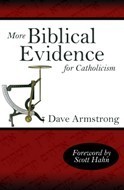 More Biblical Evidence for Catholicism (2002 181p)
More Biblical Evidence for Catholicism (2002 181p)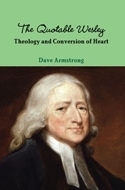 The Quotable Wesley: Theology and Conversion of Heart
[2012, 363p]
The Quotable Wesley: Theology and Conversion of Heart
[2012, 363p] 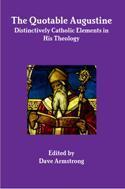 The Quotable Augustine: Distinctively Catholic Elements in His Theology
[2012, 245p]
The Quotable Augustine: Distinctively Catholic Elements in His Theology
[2012, 245p]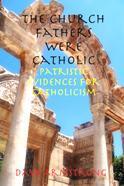 The Church Fathers Were Catholic: Patristic Evidences for Catholicism
(2007, 360p)
The Church Fathers Were Catholic: Patristic Evidences for Catholicism
(2007, 360p)  Classic Catholic Biblical Apologetics: 1525-1925 (2012, 246p)
Classic Catholic Biblical Apologetics: 1525-1925 (2012, 246p) 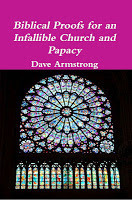 Biblical Proofs for an Infallible Church and Papacy
(2012, 150p)
Biblical Proofs for an Infallible Church and Papacy
(2012, 150p) 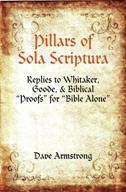 Pillars of Sola Scriptura: Replies to Whitaker, Goode, & Biblical "Proofs" for "Bible Alone" [2012, 310p]
Pillars of Sola Scriptura: Replies to Whitaker, Goode, & Biblical "Proofs" for "Bible Alone" [2012, 310p]  Biblical Evidence for the Communion of Saints
(2012, 152p)
Biblical Evidence for the Communion of Saints
(2012, 152p) 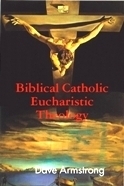 Biblical Catholic Eucharistic Theology
(2011, 222p)
Biblical Catholic Eucharistic Theology
(2011, 222p)
 Biblical Catholic Salvation: “Faith Working Through Love”
(2010, 187p)
Biblical Catholic Salvation: “Faith Working Through Love”
(2010, 187p)  "The Catholic Mary": Quite Contrary to the Bible?
(2010, 193p)
"The Catholic Mary": Quite Contrary to the Bible?
(2010, 193p) 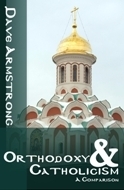 Orthodoxy and Catholicism: A Comparison
(2004, 232p)
Orthodoxy and Catholicism: A Comparison
(2004, 232p) 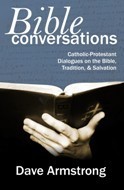
Bible Conversations: Catholic-Protestant Dialogues on the Bible, Tradition, and Salvation (2002, 218p)
 Development of Catholic Doctrine: Evolution, Revolution, or an Organic Process?
(2002, 198p)
Development of Catholic Doctrine: Evolution, Revolution, or an Organic Process?
(2002, 198p) 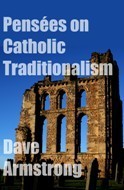 Pensées on Catholic Traditionalism
(2002, 170p)
Pensées on Catholic Traditionalism
(2002, 170p) 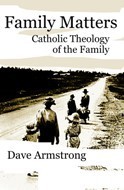 Family Matters: Catholic Theology of the Family
(2002, 159p)
Family Matters: Catholic Theology of the Family
(2002, 159p)  Martin Luther: Catholic Critical Analysis and Praise
(2008, 264p)
Martin Luther: Catholic Critical Analysis and Praise
(2008, 264p)  Biblical Catholic Answers for John Calvin
(2010, 388p)
Biblical Catholic Answers for John Calvin
(2010, 388p)  Twin Scourges: Thoughts on Anti-Catholicism & Theological Liberalism
(2003, 167p)
Twin Scourges: Thoughts on Anti-Catholicism & Theological Liberalism
(2003, 167p)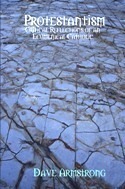 Protestantism: Critical Reflections of an Ecumenical Catholic
(2003, 188p)
Protestantism: Critical Reflections of an Ecumenical Catholic
(2003, 188p)  Science and Christianity: Close Partners or Mortal Enemies? (2010, 301p)
Science and Christianity: Close Partners or Mortal Enemies? (2010, 301p) 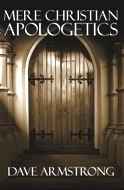
Mere Christian Apologetics (2002, 289p)
 Christian Worldview vs. Postmodernism (2002, 218p)
Christian Worldview vs. Postmodernism (2002, 218p)

Beatles, Motown, Beach Boys, Etc.: Classic Rock Discographies, Commentary, and Mono vs. Stereo Analysis (2012, 213p)
* * * * *
Published on October 16, 2012 09:18
October 12, 2012
Total Depravity: Are the Non-Elect Continually Evil? (vs. John Calvin)
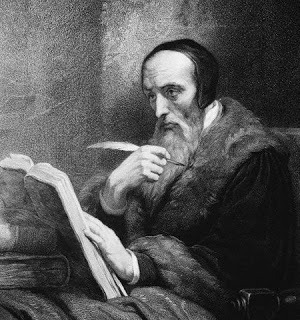
[from my book, A Biblical Critique of Calvinism ]
[my Bible citations: RSV]
Of how little value it is in the sight of God, in regard to all the parts of life, Paul shows, when he says, that we are not “sufficient of ourselves to think any thing as of ourselves,” (2 Cor. 3:5). He is not speaking of the will or affection; he denies us the power of thinking aright how any thing cam be duly performed. Is it, indeed, true, that all thought, intelligence, discernment, and industry, are so defective, that, in the sight of the Lord, we cannot think or aim at any thing that is right? To us, who can scarcely bear to part with acuteness of intellect (in our estimation a most precious endowment), it seems hard to admit this, whereas it is regarded as most just by the Holy Spirit, who “knoweth the thoughts of man, that they are vanity,” (Ps. 94:11), and distinctly declares, that “every imagination of the thoughts of his heart was only evil continually,” (Gen. 6:5; 8:21). If every thing which our mind conceives, meditates plans, and resolves, is always evil, how can it ever think of doing what is pleasing to God, to whom righteousness and holiness alone are acceptable? (Institutes of the Christian Religion, Book II, 2:25)
. . . such is the depravity of his nature, that he cannot move and act except in the direction of evil. (II, 3:5)
Calvin interprets these passages in hyper-literalistic fashion. The language of the Psalms is often proverbial (in other words, it makes general observations, which admit of exceptions: sometimes very many). Elsewhere, Scripture indicates that things are not nearly so dire and hopeless as Calvin makes out, regarding “the thoughts of men”:
Proverbs 12:5 The thoughts of the righteous are just; the counsels of the wicked are treacherous.
Proverbs 15:26 The thoughts of the wicked are an abomination to the LORD, the words of the pure are pleasing to him.
Using Genesis 6:5 as a pretext for asserting universal evil thoughts of all men is rather silly, as plainly seen in the passage’s context. Three verses later it is shown that the statement was not an absolute universal: “But Noah found favor in the eyes of the LORD.” Likewise, Genesis 6:9 asserts: “Noah was a righteous man, blameless in his generation; Noah walked with God.”
God adds seven more people (Noah’s wife and his three sons and their wives: see 6:10; 7:7) to His roster of exceptions to Calvin’s alleged universal state of mankind in Genesis 7:1: “Go into the ark, you and all your household, for I have seen that you are righteous before me in this generation.”
Moreover, the following two verses clearly prove that the language cannot be interpreted literally, since if so, the second would contradict the first (and the second is one of Calvin’s “prooftexts” for total depravity):
Genesis 8:20-21 Then Noah built an altar to the LORD, and took of every clean animal and of every clean bird, and offered burnt offerings on the altar. [21] And when the LORD smelled the pleasing odor, the LORD said in his heart, "I will never again curse the ground because of man, for the imagination of man's heart is evil from his youth; neither will I ever again destroy every living creature as I have done.
The same dynamic applies to other passages classically used by Calvinists and other Protestants in order to claim that everyone was absolutely evil and could do no good. Context shows that the passages utilized were never intended in the first place to teach such things.
But as I study brevity, I will be satisfied with a single passage, one, however, in which as in a bright mirror, we may behold a complete image of our nature. The Apostle, when he would humble man’s pride, uses these words: “There is none righteous no, not one: there is none that understandeth, there is none that seeketh after God. They are all gone out of the way, they are together become unprofitable; there is none that does good, no, not one. Their throat is an open sepulchre; with their tongues they have used deceit; the poison of asps is under their lips: Whose mouth is full of cursing and bitterness: their feet are swift to shed blood: destruction and misery are in their ways: and the way of peace have they not known: there is no fear of God before their eyes,” (Rom. 3:10–18). Thus he thunders not against certain individuals, but against the whole posterity of Adam—not against the depraved manners of any single age, but the perpetual corruption of nature. His object in the passage is not merely to upbraid men in order that they may repent, but to teach that all are overwhelmed with inevitable calamity, and can be delivered from it only by the mercy of God. As this could not be proved without previously proving the overthrow and destruction of nature, he produced those passages to show that its ruin is complete. (II, 3:2)
This is a prime example of what I just described. Romans 3 is often cited by Calvinists, following Calvin (above). It’s one of their favorite prooftexts. Romans 3:10-12 is itself a citation that St. Paul took from the Psalms:
Psalm 14:1-3 The fool says in his heart, “There is no God.” They are corrupt, they do abominable deeds, there is none that does good. [2] The LORD looks down from heaven upon the children of men, to see if there are any that act wisely, that seek after God. [3] They have all gone astray, they are all alike corrupt; there is none that does good, no, not one.
The very next Psalm is (amazingly enough) entirely devoted to “good people”:
Psalm 15:1-5 O LORD, who shall sojourn in thy tent? Who shall dwell on thy holy hill? [2] He who walks blamelessly, and does what is right, and speaks truth from his heart; [3] who does not slander with his tongue, and does no evil to his friend, nor takes up a reproach against his neighbor; [4] in whose eyes a reprobate is despised, but who honors those who fear the LORD; who swears to his own hurt and does not change; [5] who does not put out his money at interest, and does not take a bribe against the innocent. He who does these things shall never be moved.
Even two verses after Psalms 14:3, King David writes that “God is with the generation of the righteous” (14:5). In the very next verse (14:4) David refers to “the evildoers who eat up my people.” Now, if he is contrasting the evildoers with His people, then obviously, he can’t possibly be implying that everyone is evil, so that there are no righteous folks at all to be found.
The anonymous psalmist in 112:5 refers to a good man (Hebrew, tob), as does the book of Proverbs repeatedly (11:23, 12:2, 13:22, 14:14, 19), using the same word, tob, which appears in Psalm 14:2-3. References to righteous men are innumerable (e.g., Job 17:9; 22:19; Ps 5:12; 32:11; 34:15; 37:16, 32; Mt 9:13; 13:17; 25:37, 46; Rom 5:19; Heb 11:4; Jas 5;16; 1 Pet 3:12; 4:18; etc., etc.).
Jewish idiom and hyperbole of this sort appears in many other similar passages. For example, Jesus says:
Luke 18:19 No one is good but God alone. (cf. Mt 19:17)
Yet He also said:
Matthew 12:35 The good person brings good things out of a good treasure. . . . (cf. 5:45; 7:17-20; 22:10)
Jesus is drawing a strong contrast between our righteousness and God’s, but He doesn’t deny that we can be “good” in a lesser sense. Psalm 53:1-3 provides a similar example, almost identical to Psalm 14. Again, we see other proximate Psalms refer to the “righteous” or “godly” (e.g., 52:1, 6, 9; 53:4; 55:22; 58:10-11).
Romans 3:11 states, “no one seeks for God,” and in Psalms 14:2, God looks “to see if there are any that act wisely, that seek after God.” This is again hyperbolic language, and we know this because many passages teach us that many men did seek after God (e.g., Deut 4:29; 1 Chr 16:10-11; 22:19; 2 Chr 11:16; 15:12-13; 30:19; Ps 34:10; 69:32; Prov 28:5; Is 51:1; 55:6; Jer 50:4; Hos 3:5; Amos 5:6; Zeph 2:3; Zech 8:21-22; Acts 17:27).
Quite obviously, then, it is not the case that “no one” whatsoever seeks God. Passages that seem to be utterly sweeping need to be understood in terms of literary genre, immediate context, and in light of other relevant and related Bible verses.
The Bible is God’s inspired and infallible Word. It is completely self-consistent and always harmonious with itself. But Calvin’s prior theological system that he brings to Scripture would cause it to massively self-contradict. Since we believe in faith that this isn’t possible, false tenets of Calvin’s system need to be discarded, in cases where it causes this unworthy result.
The above illustrative example shows how Calvin’s exegetical reasoning fails, and does violence to Holy Scripture, rightly understood. Once again, the Catholic understanding is demonstrated to be far more in line with the Bible.
*****
Published on October 12, 2012 07:35
October 2, 2012
Ronald Knox Bible to be Available Once Again (Baronius Press)
 Msgr. Ronald Knox (1888-1957)
Msgr. Ronald Knox (1888-1957) From the Baronius Press descriptive page:
With a distinct style, it . . . has been highly praised for its freshness of approach, for its poetic language and for the ease with which it may be read. Its style has succeeded in giving meaning to passages which in earlier versions have been difficult to understand.
The great Protestant Bible scholar F. F. Bruce has written about the Ronald Knox version:
"[It] has the overwhelming advantage of being the work of a man who had an uncanny instinct for getting the right word or the right phrase in any given context. . . . Knox was a master of English style. . . . Never did a translation read less like a translation.For more information, see the Baronius Press web page, Knox Bible: Literary and Reverent .
. . . a most readable edition of the English Bible.
(History of the Bible in English, New York: Oxford University Press, 3rd edition, 1978, 208, 212)
****
Published on October 02, 2012 12:09
October 1, 2012
John Calvin's Antipathy to Veneration of Saints and Angels vs. Explicit Biblical Evidences of Same

[complete sub-section from Chapter Seven of my book, A Biblical Critique of Calvinism ]
It may be proper here more particularly to attend to the subtleties which superstition employs. In revolting to strange gods, it avoids the appearance of abandoning the Supreme God, or reducing him to the same rank with others. It gives him the highest place, but at the same time surrounds him with a tribe of minor deities, among whom it portions out his peculiar offices. In this way, though in a dissembling and crafty manner, the glory of the Godhead is dissected, and not allowed to remain entire. In the same way the people of old, both Jews and Gentiles, placed an immense crowd in subordination to the father and ruler of the gods, and gave them, according to their rank, to share with the supreme God in the government of heaven and earth. In the same way, too, for some ages past, departed saints have been exalted to partnership with God, to be worshipped, invoked, and lauded in his stead. (I, 12:1)
For it is plain that the worship which Papists pay to saints differs in no respect from the worship of God: for this worship is paid without distinction; only when they are pressed they have recourse to the evasion, that what belongs to God is kept unimpaired, because they leave him λατρια. [latreia] (I, 12:2)
Calvin neglects to see that the Bible often refers to honor given to notable or saintly human beings (and gives no hint whatsoever that this detracts from adoration and worship of God). This is an analogy to Catholic veneration. We seek (and our commanded) to imitate or emulate the saints as holy models (1 Tim 4:12; Heb 6:12; 13:7; Jas 5:10-11; 1 Pet 5:3), just as St. Paul repeatedly urged imitation of himself (Rom 11:14; 1 Cor 4:15-16; 11:1-2; Phil 3:17; 4:9; 1 Thess 1:6-7; 2 Thess 3:7-9; 2 Tim 3:10-14).
Honor is a widespread New Testament motif (Rom 12:10). We are to honor our parents (Eph 6:2), widows (1 Tim 5:3), elders (priests or bishops) in the Church (1 Tim 5:17), all men), and the emperor (1 Pet 2:17). King Asa and King Hezekiah were both honored after their deaths:
2 Chronicles 16:14 [RSV] They buried him in the tomb which he had hewn out for himself in the city of David. They laid him on a bier which had been filled with various kinds of spices prepared by the perfumer's art; and they made a very great fire in his honor. (cf. 21:19, showing that this was a general practice)
2 Chronicles 32:33 And Hezeki'ah slept with his fathers, and they buried him in the ascent of the tombs of the sons of David; and all Judah and the inhabitants of Jerusalem did him honor at his death.
How is it, then, that Calvin thinks we cannot honor and venerate fellow human saints, because they are dead, and since this allegedly is invariably identical (in the minds of those doing it) to worship of God (i.e., idolatry and replacement of what belongs to God alone)? Just because these men no longer walk the earth, it doesn’t follow at all (per Hebrews 11) that they are no longer worthy of honor and veneration.
St. Paul makes it clear that imitating him is in complete harmony with the notion of imitating Christ, whom Paul is imitating (see, e.g., Eph 5:1: "Therefore be imitators of God, as beloved children:): "Be imitators of me, as I am of Christ" (1 Cor 11:1); "And you became imitators of us and of the Lord . . ." (1 Thess 1:6).
It's not an “either/or” scenario in the Bible. But in Calvin’s mind, it is. He clearly is not thinking biblically when it comes to veneration of saints. He refuses to make necessary distinctions, and collapses categories together that are clearly separated in the Bible and in Catholic theology.
When Christ repels Satan’s insulting proposal with the words, “It is written, Thou shalt worship the Lord thy God, and him only shalt thou serve,” (Mt. 4:10), there was no question of λατρια [latreia]. For all that Satan asked was προσκὺνεσις (obeisance). In like manners when John is rebuked by the angel for falling on his knees before him (Rev. 19:10; 22:8, 9), we ought not to suppose that John had so far forgotten himself as to have intended to transfer the honour due to God alone to an angel. But because it was impossible that a worship connected with religion should not savour somewhat of divine worship, he could not προσκὺνει̑ν (do obeisance to) the angel without derogating from the glory of God. True, we often read that men were worshipped; but that was, if I may so speak, civil honour. The case is different with religious honour, which, the moment it is conjoined with worship, carries profanation of the divine honour along with it. (I, 12:3)
We are not to – must not! -- adore and worship anyone but God. This is what the Catholic Church has always taught. But we can and should also honor and venerate saints and angels. No one need merely take our word on that. A clear indication of this in Holy Scripture is Joshua’s veneration of the angel who commanded the Lord’s army:
Joshua 5:13-15 When Joshua was by Jericho, he lifted up his eyes and looked, and behold, a man stood before him with his drawn sword in his hand; and Joshua went to him and said to him, "Are you for us, or for our adversaries?" [14] And he said, "No; but as commander of the army of the LORD I have now come." And Joshua fell on his face to the earth, and worshiped [shachah], and said to him, "What does my lord bid his servant?" [15] And the commander of the LORD's army said to Joshua, "Put off your shoes from your feet; for the place where you stand is holy." And Joshua did so.
This Hebrew word shachah (Strong’s word #7812) is translated 99 times in the King James Version (according to Young’s Concordance) as “worship” in the Old Testament, including passages that refer to exclusive worship of God:
Exodus 34:14 (for you shall worship [shachah] no other god, for the LORD, whose name is Jealous, is a jealous God),
But it also can refer to bowing or crouching (53 instances), obeisance (nine times), and prostration (four examples). Thus, here it is applied to the veneration of an angel, with no disapproval in the inspired text.
This goes beyond even the Catholic distinction between dulia and latreia, that Calvin roundly mocks as absurd, since the same word is applied to fundamentally different actions: thus potentially leading to far more confusion than Calvin thinks Catholic distinctions of words and actions lead to. Why, then, does he not go after the inspired Bible writers with the same vehemence that he reserves for his anti-Catholic zeal?
Moreover, "worship" is used in a wider (literary) sense of showing reverence or obeisance to men of authority (in this instance, a king), in the following passage (in KJV, for illustration):
1 Chronicles 29:20 And David said to all the congregation, Now bless the LORD your God. And all the congregation blessed the LORD God of their fathers, and bowed down their heads, and worshipped [shachah] the LORD, and the king.
The RSV has: "worshiped the LORD, and did obeisance to the king," but it is one Hebrew word applied to both. A similar passage to Joshua 5:13-15 occurs with a different Hebrew word, qadad (Strong’s #6915):
Numbers 22:31 Then the LORD opened the eyes of Balaam, and he saw the angel of the LORD standing in the way, with his drawn sword in his hand; and he bowed [qadad] his head, and fell on his face.
Like schachah, this word can also denote veneration or reverence of creatures (see, e.g., 1 Sam 24:8; 1 Ki 1:16, 31: obeisance to the king), while at the same time it can be applied to worship or adoration of God, in the same outward gesture of bowing down before Him:
Exodus 12:27 you shall say, `It is the sacrifice of the LORD's passover, for he passed over the houses of the people of Israel in Egypt, when he slew the Egyptians but spared our houses.'" And the people bowed [qadad] their heads and worshiped [shachah].
Exodus 34:8 And Moses made haste to bow [qadad] his head toward the earth, and worshiped [shachah].
In fact, King Saul venerated [both shachah and qadad] – and talked to -- the prophet Samuel after his death:
1 Samuel 28:14 . . . And Saul knew that it was Samuel, and he bowed [qadad] with his face to the ground, and did obeisance [shachah].
This is almost the most explicit conceivable biblical evidence (from Hebrew words and what is described in the passage) for veneration of creatures that can be imagined. He is venerating a dead prophet (not even an angel this time), and the two Hebrew words used to describe what he did are both applied many times to adoration of God.
Now, Calvin is fond of regarding purely Old Testament arguments as antiquated and of no import in the Christian age. Therefore, to persuade Calvinists of the force of this argument, we (preferably) need to find a corresponding or analogous New Testament linguistic argument, having to do with the veneration / worship question. Some indication exists, that this is the case.
One relevant Greek word along these lines is pipto (Strong’s word #4098). It means, literally, “fell” or “fall down”. We see many instances where it is applied (as a reverent gesture) to divine adoration or worship of God (proskuneo is Greek for “worship”: Strong’s #4352):
Matthew 2:11 and going into the house they saw the child with Mary his mother, and they fell down [pipto] and worshiped [proskuneo] him. . . .
Matthew 17:5-6 He was still speaking, when lo, a bright cloud overshadowed them, and a voice from the cloud said, "This is my beloved Son, with whom I am well pleased; listen to him." [6] When the disciples heard this, they fell [pipto] on their faces, and were filled with awe.
1 Corinthians 14:25 . . . falling [pipto] on his face, he will worship [proskuneo] God . . .
Revelation 4:10 the twenty-four elders fall down [pipto] before him who is seated on the throne and worship [proskuneo] him who lives for ever and ever . . .
Revelation 5:8 . . . the four living creatures and the twenty-four elders fell down [pipto] before the Lamb . . .
Revelation 5:14 And the four living creatures said, "Amen!" and the elders fell down [pipto] and worshiped [proskuneo]. [the “Lamb”: 5:13]
Revelation 11:16 And the twenty-four elders who sit on their thrones before God fell [pipto] on their faces and worshiped [proskuneo] God,
Calvin brings up the passages about St. John being “rebuked by the angel for falling on his knees before him (Rev. 19:10; 22:8, 9)” as a counter-argument against generation of saints. Likewise, we can note the related passage of Acts 10:25, where St. Peter discourages Cornelius from worshiping him, since he is a man. All three of those passages contain both pipto and proskuneo.
Here is another New Testament text with a related word (prospipto), having to do with the jailer, after Paul and Silas prayed in prison and an earthquake resulted:
Acts 16:29 . . . trembling with fear he fell down before [prospipto] Paul and Silas,
As in the verses above, we observe both fear and falling down, but (quite interestingly) there is no rebuke or clarification from Paul and Silas that they were but men. Proskuneo doesn’t appear (the word that would prove it was attempted worship or adoration). This is, then, arguably an instance of veneration of Paul and Silas, due to the supernatural event that showed them to be very special men.
Another passage with a different word used, implies possible veneration of an angel:
Luke 24:4-5 While they were perplexed about this, behold, two men stood by them in dazzling apparel; [5] and as they were frightened and bowed [klino] their faces to the ground . . .
Both fear and a bowing or prostrating gesture are, in the Bible, presented as characteristic in encounters with angels. Once again, proskuneo is not present in the passage, and here, as in Acts 16:29, the women were not told to get up, as if they had done anything improper. This is (arguably, plausibly) because they were venerating the angel and not adoring or worshiping, which would be impermissible.
We thus can rightly conclude, in light of all these fascinating passages, that God (unlike Calvin) doesn’t seem to think that human beings are so breathtakingly stupid and ignorant that they can’t (or very often cannot) tell the difference between creatures and God, or between veneration and adoration / worship.
Therefore, He didn’t see fit (in inspiring those who wrote his revelation to man) to even bother to use a different word for the two in Hebrew; and even in the New Testament, the gesture (falling down) was no different for veneration than it was for adoration. According to Calvin, this causes confusion and idolatry, but according to Catholicism and the Bible, people generally have enough discernment to know the difference between the two.
The dichotomy that God is concerned about is between the true God (Himself) and false gods (as represented by material idols); not between veneration (where it is properly due) and worship reserved for Him alone: as if the former is completely forbidden and wicked.
Calvin (agreeing with the Catholic Church) rightly condemns the detestable idolatry of worshiping false gods, but his mistake is to equate altogether permissible biblical veneration with this rank idolatry of serving other “gods” beside the one true One. This is one of the fundamental errors of the so-called Protestant “Reformation,” and we see how completely false and unbiblical it is.
God knew what He was doing. I submit that John Calvin often did not, and the sad thing is that his erroneous teachings (which aren’t all of them, but a great number) have led millions of souls into various dangerous theological and spiritual errors and deprived them of spiritual aids and beliefs (such as veneration of saints and angels) that could have helped them to become closer to God and to better withstand the world, the flesh, and the devil.
* * * * *
Published on October 01, 2012 09:41
Books by Dave Armstrong: A Biblical Critique of Calvinism
 [currently in progress]
[currently in progress]Subtitle:
Exegetical Replies to Biblical Arguments in John Calvin’s Institutes, Books I-III
TABLE OF CONTENTS
[in process / tentative at this point]
Dedication
Introduction [read in its entirety]
I. Salvation, Justification, Sanctification, and Predestination
1. Is God the Author of Evil? [read lengthy excerpt on Facebook]
2. Can Only Regenerate Men Perform Truly Good Works?
3. Total Depravity: Are the Non-Elect Continually Evil? [read in its entirety online]
4. Are All Hearts “Desperately Wicked”?
II. Baptism and Visual Images
1. Non-Idolatrous Physical Images of God in Scripture
2. “Graven Images”: Extreme and Unbiblical Iconoclasm
3. Calvin’s Denial of Images as a Teaching Aid
III. Bible and Tradition: The Rule of Faith
1. Scripture has Intrinsic Authority, Not from the Church
2. Church Authority and the Canon of Scripture
IV. The Holy Eucharist and the Sacrifice of the Mass
V. Ecclesiology (Theology of the Church)
VI. Papal, Petrine, and Roman Primacy
VII. The Communion of Saints
1. Antipathy to Veneration of Saints and Angels [read online]
VIII. Purgatory and Penance
IX. Mariology
X. Appendix of Areas of Calvinist-Catholic Agreement
Apostolic Succession Church: No Salvation Outside of
Glory of God: Displayed in, or Shared with Angels
Glory of God: Displayed in, or Shared with Men
God: Anthropomorphism / Anthropopathism
God: Immutability of
God: Providence of / Sustainer of the Universe
Grace: Greater Degree or Measure of
Grace: Synergy; Free Cooperation with God’s Grace
Law of Moses: not Abrogated or Abolished
Mary: “Blessed Virgin”
Materialism, Scientific (Falsity of)
Natural Theology / Teleological Argument for God
Paganism, Incorporation of Truths from
Updated on 12 October 2012.
*****
Published on October 01, 2012 08:49
Book by Dave Armstrong: A Biblical Critique of Calvinism
 [currently in progress]
[currently in progress]Subtitle:
Exegetical Replies to Biblical Arguments in John Calvin’s Institutes, Books I-III
TABLE OF CONTENTS
[in process / tentative at this point]
Dedication
Introduction [read on separate page]
I. Salvation, Justification, and Sanctification
II. Baptism and Visual Images
1. Non-Idolatrous Physical Images of God in Scripture
2. “Graven Images”: Extreme and Unbiblical Iconoclasm
3. Calvin’s Denial of Images as a Teaching Aid
III. Bible and Tradition: The Rule of Faith
1. Scripture has Intrinsic Authority, Not from the Church
2. Church Authority and the Canon of Scripture
IV. The Holy Eucharist and the Sacrifice of the Mass
V. Ecclesiology (Theology of the Church)
VI. Papal, Petrine, and Roman Primacy
VII. The Communion of Saints
1. Antipathy to Veneration of Saints and Angels [read online]
VIII. Purgatory and Penance
IX. Mariology
X. Appendix of Areas of Calvinist-Catholic Agreement
Apostolic Succession
Materialism, Scientific (Falsity of)
Natural Theology / Argument from Design (Teleological Argument for God)
Paganism, Incorporation of Truths from
*****
Published on October 01, 2012 08:49
Dave Armstrong's Blog
- Dave Armstrong's profile
- 20 followers
Dave Armstrong isn't a Goodreads Author
(yet),
but they
do have a blog,
so here are some recent posts imported from
their feed.



